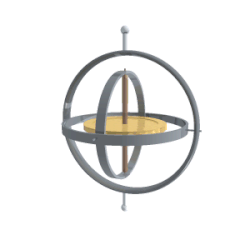Hi
I would not normally write so much here, but as you come back now and then to inspect the responces I thought it only proper to do so.
I see that you are both a rigorous and thorough researcher (which is a credit to your academic background). I see also that you see the value of self limiting on ones innate CDO nature (that would be OCD in alphabetic order, and perhaps in a form of a slavonic grammar) ..
you said:
I try to limit my access online ... I tend to overanalyze and that does not help me ... I read every single post containing word rheumatic fever ... I found out, that several of them faced big challenges, that went far beyond valve replacement, and included things like pulmonary hypertension, constrictive pericarditis and subsequently total pericardiectomy, atrial fibrillation, etc. The more I read, the more freaked out I became.
I think that you are the first person who has (or perhaps the first who has admitted to) undertaken serious data mining of this site (I assume with the assistance of Google).
To my mind this is one of the most significant outcomes of this site: that it provides a significant public resource of data so that a researcher can mine it for value.
Being one who has been involved in Universities for some decades (and one who believes in knowledge being free) I believe that this is one of the great advantages of the discussions here remaining persistent and searchable.
Your work reminds me of the character Louis Wu from the Ringworld novel (by Niven). He was also aware of the self discipline required to prevent ones compulsions (perhaps better phrased as one's intellectual autonomic functions) from overwhelming ones conscious mind.
That you observe:
After all, as PGARG said, I don't need tomorrow's pain today.
reinforces to me that your frame of reference is returning to a more stable one. Louis returned himself to mental health from a powerful (yet totally internal) addiction. To me, obsessive behaviour can be just such an addiction. It is what has driven most of the great minds of human history, and it is what has also cast many into a pit. Few understand this (some call it being driven).
In my role as a DBA I have been accused by stakeholders of being a bit OCD with respect to correctness of applications and security of the database. Often I reply "well, ok, you just point out which parts you don't mind going missing or being corrupted and I'll relent on those ... the finance guys shut up pretty quick right about then. I think being a bit OCD is a requirement of being a good DBA and a good analyist.
Anyway, getting back to my point, are you familiar with the concept of a gimble?
A basic 2 dimension gimble has been used in ships to keep the ships compass oriented flat no matter what happens to the ship.
I think that you are developing your internal mental gimble as an outcome of coping with this situation you are in.
You also mention:
that rheumatic fever can be misdiagnosed in a country of European Union in 2013. I think this simply should not have happened - I've been to more ... doctors you can think of. So that is why I feel I was cheated. I trusted we have a good health system, but now I simply don't have that trust anymore
With respect to this I would say that your concern about diagnoisis is understandable (and I've certainly been there myself with the failure to diagnose and suggesting that Anitas vomiting was "morning sickness" rather than being a brain tumor). However the diagnosis of things is not always straightforward and (rather like many mathematical puzzles) is more easilly seen in reverse than it is in the forward time scale.
One of my good friends is married to a pediatric sugeon. I was discussing with her my despair at the medical diagnosis (or lack thereof) with her. She sympathised with me but reminded me in her work (medical) it is often very difficult to distinguish the various symptoms and put together the ones which are related while correctly discounting those which are spurious or "noise" to the analysis.
Combined with the fact that the medical practitioner does not spend anywhere near as much time on your case as you do (they treat dozens per day by dint of the manner in which we run our medical systems) and thus can not really dedicate as much time / brain power to it as you can.
This is not really a detriment of our system so much as a reflection of the natural economies of things. Even the sick (such as ourselves) often don't recognise the brevity of a situation until it is self evident.
This is the nature of things and I urge you to stop kicking yourself about it.
Of course I recognise that one must kick ones self about this until one is ready to give up. But seeing that point is actually an indicator of progress.
My lovely wife used to say to me often : "Don't be so hard on yourself"
I am trying to learn that ... and I hope that one day you can learn it too.























